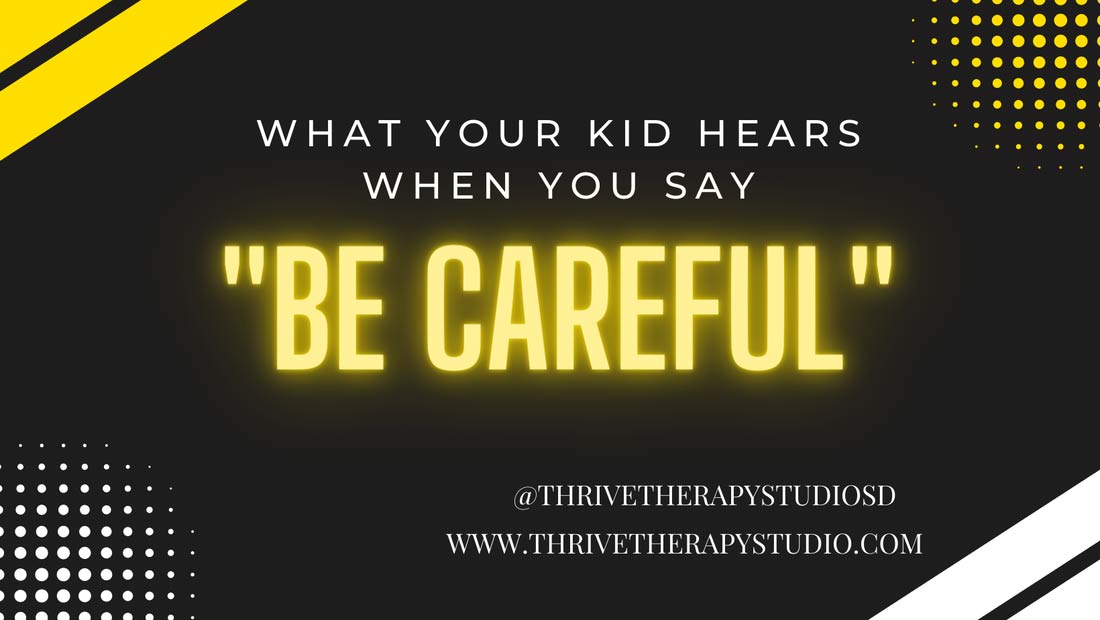“Be careful!” is a phrase that is commonly and frequently expressed at every park I’ve ever been to. Often I think it is warranted and can help keep kids safe. It reminds me of a time in 2nd grade that I wish I had been told to be careful. I had thought somersaulting down a slide was a good idea (spoiler: it was not a good idea, but I got some cool new eyeglass frames because of it). We always want kids to stay safe. As adults, we have become skilled at perceiving when a situation may be risky. When we tell kids “be careful”, we hope to convey a need to be more cautious or warn them of potential dangers. While we might be trying to help keep them safe, there are a few other things they might actually be hearing instead.
1. “I can’t do it on my own.” When kids approach a task, they may think they are capable of doing it. We also might know that they are capable too! However, hearing “be careful” can leave them feeling that this task is too much for them to handle. Rather than developing an increased sense of agency and awareness, they may start to doubt their capabilities and be inclined to ask for help more often than needed. Over time, this can create an unnecessary need to be more dependent on adults.
2. “I need to get approval first.” We’ve all seen when young kids look back at their parents before going down a slide to check if it is safe. When this happens, a parent will share some encouragement and then excitement when their child makes it down the slide! This is an example of a time in which it would be appropriate for the child to visually check with their parents that they are going to be safe. However, when a parent repeatedly tells their child to be careful, it might lead to the child relying on this checking behavior more often than needed.
3. “I’m not as good at this as I thought.” A child may not feel confident with the task at hand, yet still feel confident in themselves. Hearing “be careful” too often can start to chip away at their self-confidence and replace it with doubts. Exchanging “be careful” with “I believe in you” shifts the emphasis to a positive light and can increase a child’s confidence and self-esteem.
4. Lastly, they may feel an increased sense of danger. A kid might have felt calm, but the result of hearing “be careful” can increase their anxiety and stress levels. The situation they were facing might have seemed safe and okay from the start, but after the warning of “be careful,” the situation can then shift and provoke anxiety. In another scenario, they might have already had anxiety and doubts going into a situation, but the added warning can end up increasing these anxieties and doubts even more despite their initial cautiousness.
While there is a line between keeping your child safe and allowing them to try new things on their own, sharing your faith in them can in the end increase their trust within themselves to be safe and secure. In the times in which they do get hurt, you will have laid a good groundwork for them to share this with you, knowing that their parents have confidence in them that they will succeed.
Reach out to start
your healing journey


